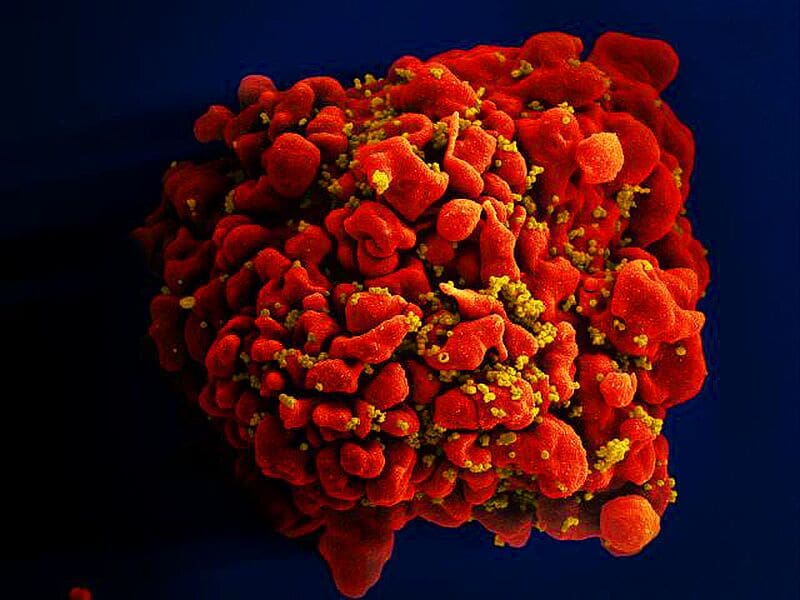Cologne researchers discover broadly effective antibody against HIV
An international research team led by the University of Cologne has discovered an antibody that neutralizes almost all tested HIV variants in vitro and overcomes classic resistance mechanisms. The antibody 04_A06 could open up new avenues for the prevention and treatment of HIV infections. In laboratory tests, it blocked 98.5 percent of over 300 HIV strains. In humanized mice, it permanently lowered the viral load to undetectable levels, in contrast to other antibodies, in which resistance develops quickly.

The study is based on blood samples from elite neutralizers whose immune system effectively fights the virus. More than 800 antibodies were isolated and tested from over 5000 B lymphocytes. 04_A06 is characterized by an unusually long amino acid chain that acts like a gripper arm and reaches conserved virus regions that are difficult to change. Computer models predict a protective effect of over 93 percent with a single dose.
Professor Dr. Florian Klein, Director of the Institute of Virology at the University Hospital of Cologne and head of the study, emphasizes the importance of international cooperation: “The close cooperation with study centers in Africa, Nepal and the USA was crucial for the success of this work. The next step is to further test the safety and efficacy of the antibody in clinical trials and thus prepare the way for patient care.”
The results were published in Nature Immunology. The antibody was licensed to Vir Biotechnology. Next steps include clinical trials on safety and efficacy. The work was funded by the Gates Foundation, the German Research Foundation, the German Center for Infection Research and the European Research Council. Cooperation with centres in Africa, Nepal and the USA was crucial.
Original Paper:
Profiling of HIV-1 elite neutralizer cohort reveals a CD4bs bnAb for HIV-1 prevention and therapy | Nature Immunology
Editor: X-Press Journalistenbû¥ro GbR
Gender Notice. The personal designations used in this text always refer equally to female, male and diverse persons. Double/triple naming and gendered designations are used for better readability. ected.




